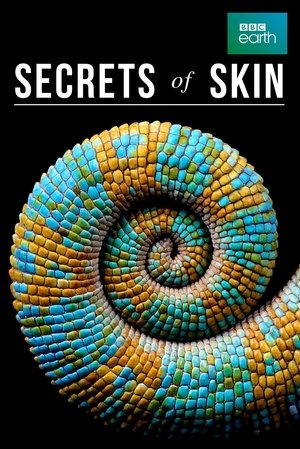
Botany: A Blooming History(2011)
Overview
Series which tells the story of how people came to understand the natural order of the plant world, and how the quest to discover how plants grow uncovered the secret to life on the planet.
Loading episode ratings...
This may take a moment for shows with many seasons.
No imageSeason 1
3 episodes • 2011
Season 1
3 episodes • 2011
| # | Episode | Air Date | Rating |
|---|---|---|---|
| 1 | A Confusion of Names | Jun 7, 2011 | 0.0 |
| 2 | Photosynthesis | Jun 14, 2011 | 0.0 |
| 3 | Hidden World | Jun 21, 2011 | 0.0 |
Related Shows

Mountain Men
2012Profiles of some of the men who choose to live off the grid in the unspoiled wilderness, where dangers like mudslides, falling trees and bears are all part of everyday life.

Expedition with Steve Backshall
2019The naturalist visits uncharted territory in pursuit of new discoveries. Steve Backshall takes on physical challenges, encounters extraordinary wildlife and meets remarkable people.

Unnatural Selection
2019From eradicating disease to selecting a child's traits, gene editing gives humans the chance to hack biology. Meet the real people behind the science.

The Wonder of Animals
2014Chris Packham uses groundbreaking science and brand-new behaviour to delve deep beneath the skin and discover the unique features that have made certain animal groups successful.

Kingdom of the Oceans
2011A four-part documentary series on ocean life around the world.

Une saison au zoo
2014No description available.

Wild Canada
2014The four-part series takes an awe-inspiring look at the world around us, shot with ultra-high-definition cameras that capture sweeping panoramas and extraordinary close-ups of Canada’s majestic terrain and diverse species.

Wilderness with Simon Reeve
2024On his toughest journeys yet, Simon Reeve travels through some of the most remote landscapes on Earth in search of the people and the wildlife of the planet’s greatest wildernesses.

Africa's Deadliest
2011Africa is a land sculpted by time where animals have evolved complex weapons to arm them in the battle to live another day. An elephant's tusks can defend, or attack. An octopus uses camouflage to find food, or hide from an enemy. A Cape Fur Seal's speed and agility are valuable tools to catch a penguin, but ineffectual against a Great White Shark. A single hippopotamus holds a pride of twelve lions at bay with his sheer bulk, but backs down when faced with the piercing teeth of another hippo. With lethal weapons wielded by fearsome predators and prey, animals walk a precarious path, here among Africa's Deadliest.

Inside the Animal Mind
2014Chris Packham travels the world to uncover the secrets of the animal mind.

Amerikas Naturwunder
2015No description available.

First Peoples
2015A five-part series that features the latest research exploring how early humans evolved. See how the mixing of prehistoric human genes led the way for our species to survive and thrive around the globe. Archaeology, genetics and anthropology cast new light on 200,000 years of history, detailing how early humans became dominant.

Secrets of the Ocean Realm
1997Take the plunge into a fantastic world of incredible creatures. Academy Award winner Linda Hunt narrates this mesmerizing, breathtakingly photographed series that explores the mysteries of the ocean depths. Seven-time Emmy-winning underwater filmmakers Howard and Michele Hall are your guides to an incredible world of fascinating and fearsome creatures. Gaze in wonder at spectacular scenes, compelling sights and exotic behaviors never before filmed.

Minnesota: A History of the Land
2005Brings to life the epic story of the people and landscapes of Minnesota - from the retreat of the last ice sheets to the growth of today’s suburbs - using nature videography from across the state, never-before-seen historic images, state-of-the-art animations, and historic recreations.

Countryfile
1988The people, places and stories making news in the British countryside.

The National Parks: America's Best Idea
2009Filmed over the course of more than six years at some of nature's most spectacular locales – from Acadia to Yosemite, Yellowstone to the Grand Canyon, the Everglades of Florida to the Gates of the Arctic in Alaska - “The National Parks: America's Best Idea” is nonetheless a story of people: people from every conceivable background – rich and poor; famous and unknown; soldiers and scientists; natives and newcomers; idealists, artists and entrepreneurs; people who were willing to devote themselves to saving some precious portion of the land they loved, and in doing so reminded their fellow citizens of the full meaning of democracy.

Secrets of Skin
2019Featuring groundbreaking new science, experiments and leading scientists from a variety of disciplines, the series unravels the natural history of the body's largest organ.

Nature Tech
2006All In Earth's 4 billion year history, nature has solved all of lifes problems, from the highest mountain to the deepest ocean. Evolution is the ultimate inventor and many of mans most clever engineering solutions have exact counterparts in nature. In three amazing episodes, NatureTech views our world with fresh eyes, where nature and technology stand hand in hand.

Naked Science: Evolution
2016No description available.

Za oponou přírody
2023No description available.